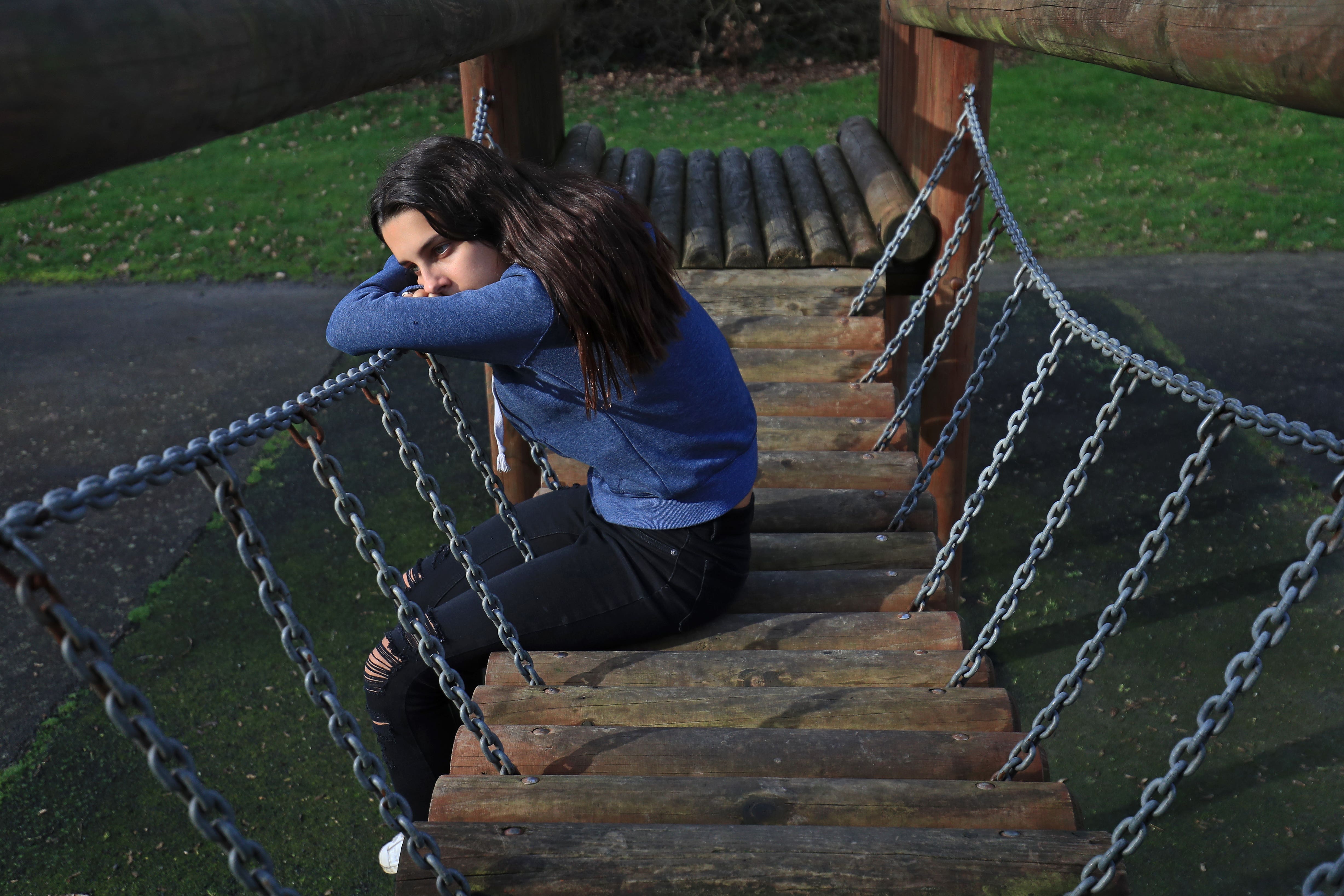One in five young adults experiencing ‘severe distress’ since pandemic – study
The impact of Covid-19, the cost-of-living crisis and climate change could all be contributing to worsening mental health, researchers suggested.

Your support helps us to tell the story
From reproductive rights to climate change to Big Tech, The Independent is on the ground when the story is developing. Whether it's investigating the financials of Elon Musk's pro-Trump PAC or producing our latest documentary, 'The A Word', which shines a light on the American women fighting for reproductive rights, we know how important it is to parse out the facts from the messaging.
At such a critical moment in US history, we need reporters on the ground. Your donation allows us to keep sending journalists to speak to both sides of the story.
The Independent is trusted by Americans across the entire political spectrum. And unlike many other quality news outlets, we choose not to lock Americans out of our reporting and analysis with paywalls. We believe quality journalism should be available to everyone, paid for by those who can afford it.
Your support makes all the difference.One in five 18 to 24-year-olds in England have reported experiencing severe psychological distress since the start of the pandemic, research suggests, raising concerns of a “growing mental health crisis” in the country.
The study, published in the journal Jama Network Open, also suggests there is a steady rise in the number of people across all age groups – except for those over 65 – saying they are experiencing severe distress.
The researchers said that as well as the Covid-19 pandemic, a cost-of-living crisis and climate change may also be contributing to declining mental health.
Our study shows that England's well-being is steadily getting worse
Senior study author Dr Leonie Brose, from the Institute of Psychiatry, Psychology & Neuroscience (IoPPN) at King’s College London, said: “The last three years have seen an unprecedented series of events that can be seen to be contributing to a worsening in people’s mental health, a pandemic, a cost-of-living crisis, and a healthcare crisis.
“Our study shows that England’s well-being is steadily getting worse.
“The number of people reporting severe distress is growing in all age groups from all economic backgrounds – only the over-65s appear to be avoiding this.
“What’s required now is a strategy that puts equality, well-being and sustainability at the heart of society’s response.”
Groups with particularly high rates of distress include young adults, women, non-binary people, people working in routine and manual occupations, and people who smoke
For the study, the researchers looked at data from the Smoking and Alcohol Toolkit study, involving more than 50,000 people aged 18 and above, between April 2020 and December 2022.
They were asked how often in the last 30 days they had experienced negative feelings such as nervousness, hopelessness and worthlessness, and how often they felt restless or fidgety, so depressed that nothing could cheer them up, and that everything was an effort.
Results showed the biggest rise in 18 to 24-year-olds in the latter part of the study period – from 13.6% in December 2021 to 20.2% in December 2022.
The researchers also found that the proportion of adults reporting severe distress rose steadily over the course of the study, from 5.7% in 2020 to 8.3% in 2022.
If we don’t prevent high levels of psychological distress ... this will feed through into greater mental and physical ill health, impacting productivity and requiring more support from already stretched services
Dr Sarah Jackson, the study’s first author, from University College London, said: “The high burden of mental health problems in England is not necessarily a new concern, but recent events appear to have exacerbated the problem and caused existing inequalities in mental health to deepen.
“Groups with particularly high rates of distress include young adults, women, non-binary people, people working in routine and manual occupations, and people who smoke.
“This burden has been made worse by a particularly sharp rise in severe distress since 2021 among 18 to 24-year-olds.”
Mark Rowland, chief executive of Mental Health Foundation and chair of the Mental Health and Smoking Partnership, said: “These findings illustrate the urgent need to address the mental health consequences of the pandemic.
“If we don’t prevent high levels of psychological distress, particularly among young and disadvantaged groups, this will feed through into greater mental and physical ill health, impacting productivity and requiring more support from already stretched services.”
As we predicted, this research provides evidence that levels of severe psychological distress have increased during the pandemic years. Whilst we are not able to attribute this directly to any single factor, it is likely that a range of factors are contributing to this
Commenting on the research, Sir Simon Wessely, Regius Professor of Psychiatry at King’s College London, said: “There has been a definite increase in more severe levels of distress, some of which may reach what we call ‘clinical’ levels, in which some form of assessment, most likely in primary care, might be indicated.
“Of particular concern is that this is seen most in young people, confirmed by other studies.
“However, I think we should be careful before labelling this another ‘mental health crisis’, nor assume that this has a single cause or single solution.”
Dr Michael Bloomfield, clinical research fellow at UCL, said: “As we predicted, this research provides evidence that levels of severe psychological distress have increased during the pandemic years.
“Whilst we are not able to attribute this directly to any single factor, it is likely that a range of factors are contributing to this.”